What is the Enneagram Part II
Below is a brief and fairly general description of each of the nine Enneagram types. There is a great deal of individual variation within each type. My intention here is simply to give you a taste of each.
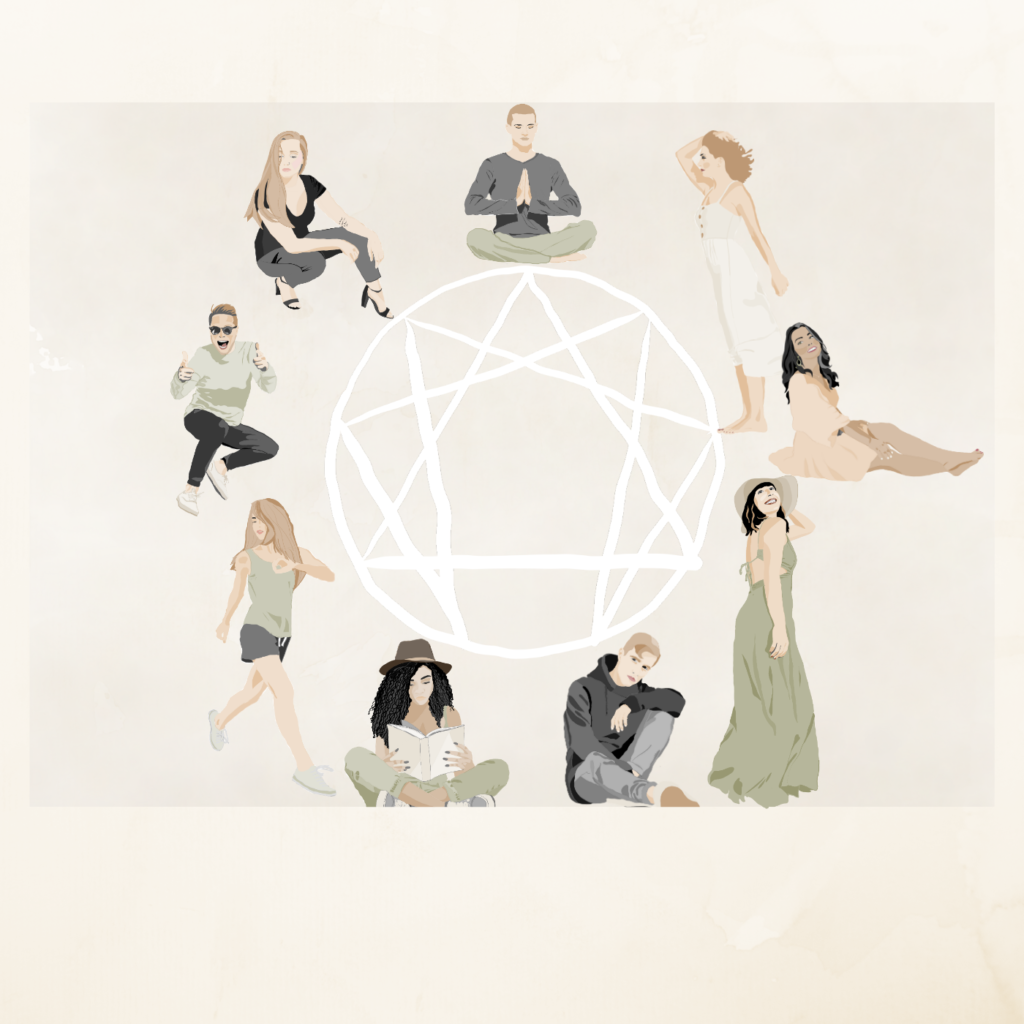
From a spiritual perspective, your primary type is the way your Essence or True Nature has attempted to make up for the loss of connection to a specific aspect of your Divine Source. It is the way you have learned to feel OK, so that you have a place or function in the world. We identify with a way of being, an image, that we think is us, but in reality, it is only a manufactured attempt to feel reconnected with our deepest Essence, which we feel disconnected from (the Great Loss). Learning the Enneagram can help us find our way back to that sense of connection, alignment, and resonance with our who we truly are.
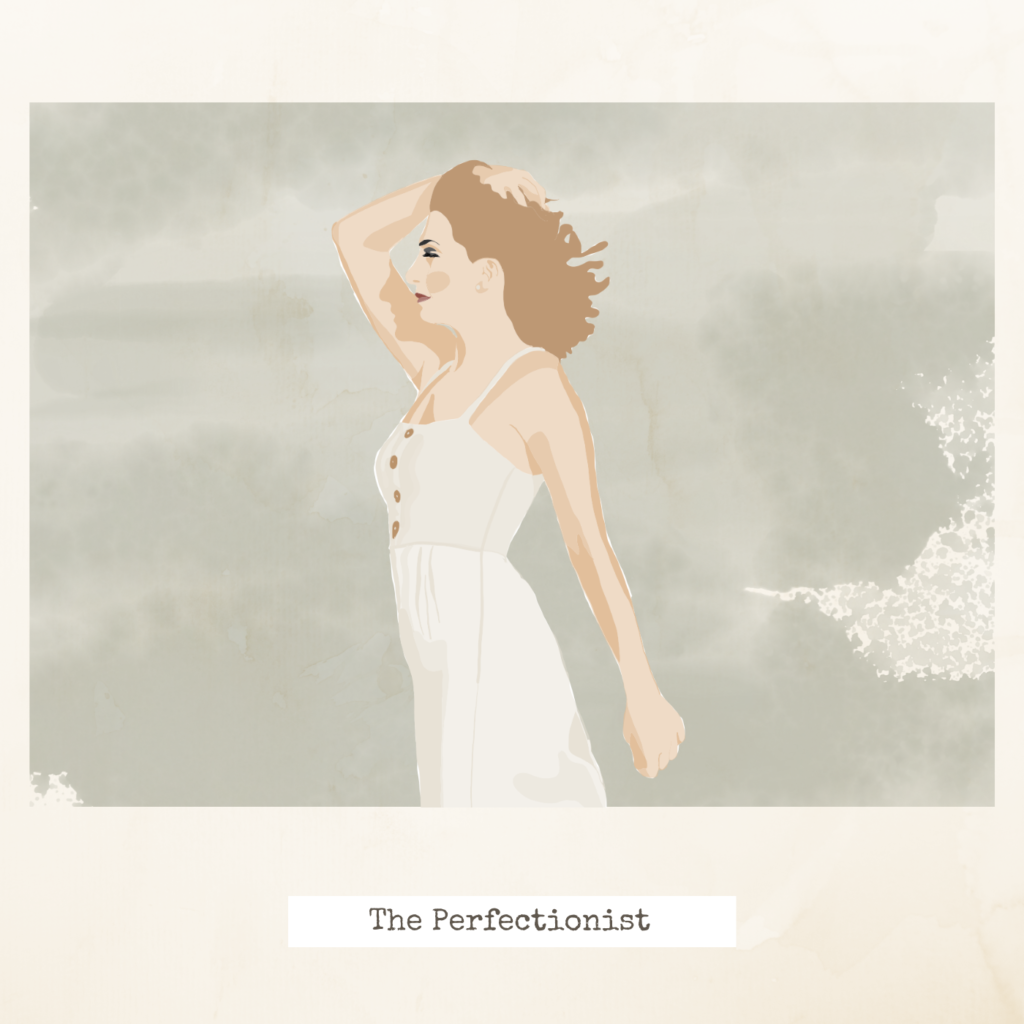
Type One – The Reformer
Type Ones are principled, rational and idealistic. They are guided by a strong sense of right and wrong and tend to see most things as either black or white. They long for a just and moral world and feel called to improve on anything they see can be made better, more perfect. They are well-organized, hard workers, and often struggle to allow themselves time to relax and have fun. After thoroughly completing one task, there’s usually something else they feel responsible to improve upon.
Being ethical is important for Ones and they hold themselves and everyone else to very high standards. Sometimes they come across as being critical, judgmental or perfectionistic, however; they judge themselves the hardest. Their ruthless Inner Critic constantly reminds them that they need to do the right thing and be good. They have a deeply rooted belief that they are inadequate and need to create their own rules and be right.
Type Ones often have problems with resentment, impatience and repressed anger. They feel frustrated when life and people are not what they think they should be. They try to recreate the perfection they experienced when they felt connected to their Divine Source, which was Utter Goodness and pure Perfection in the Imperfect. The more disconnected they become from their Essence the more imperfection they see everywhere around them as well as inside themselves. They become rigid, opinionated and righteous.
At their best, Ones are wise, discerning, realistic and noble. By being willing to improve on themselves, they set a moral example for others. Their sense of justice, attention to detail and belief that we can do and be better help guide us to better ways of taking care of our communities and the earth. Inspired by a higher purpose, they are responsible, mission driven and have the self-discipline to create a better world.
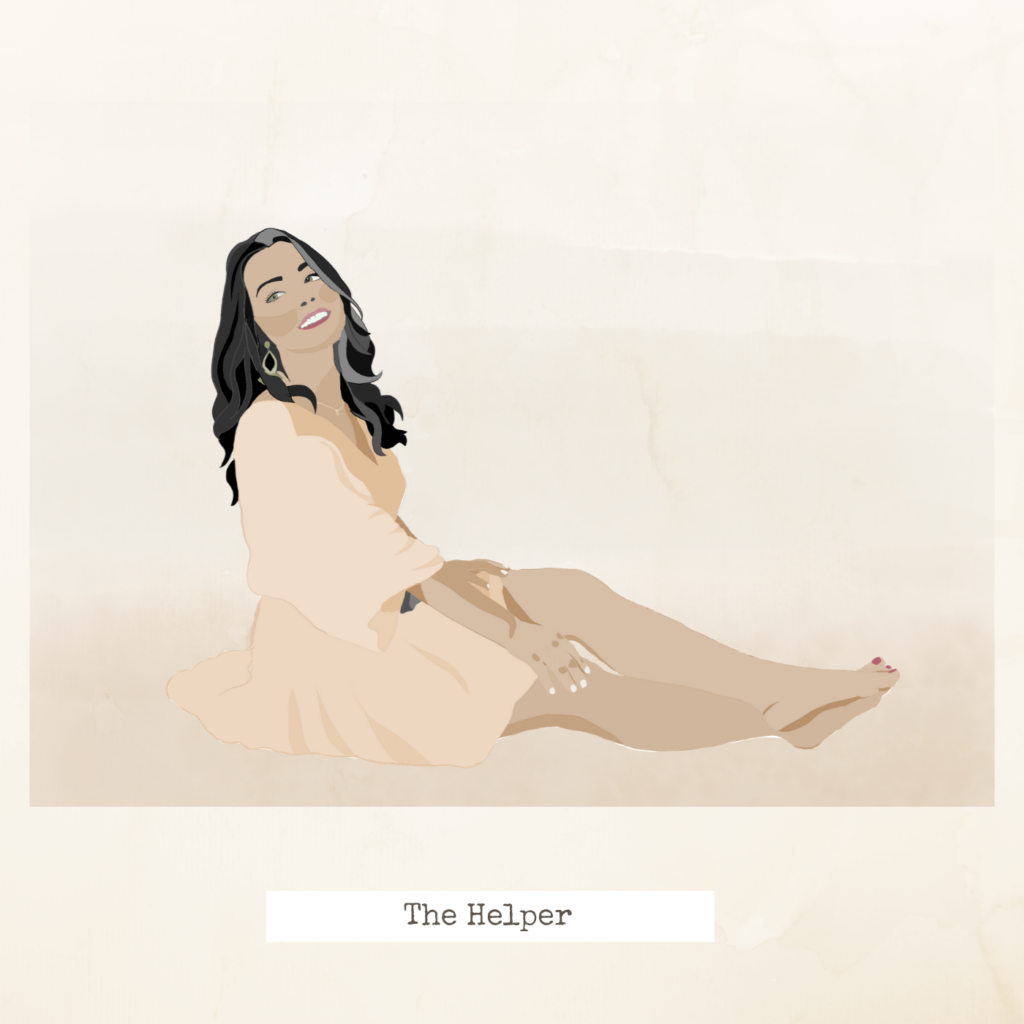
Type Two – the Helper
Type Twos are nurturing, empathetic, sincere and warm-hearted. They are giving and well-meaning and driven by a need to be close to others. They have a unique ability to sense what others need and they enjoy being the one to offer help.
Type Twos experienced their Divine Source as boundless, unconditional Love. Having lost the connection with their loving Essence, they feel that it’s up to them to create and provide love for others. They often experience at a very young age that they are required to be the emotional support in their family. They take on the belief that they have to take care of others first and that way earn love. The message they hear from their Inner Critic is that they are only ok if they are loved by others.
Hence they work hard to earn love, making sure to always put the needs of everyone else first. They perceive that doing things just for themselves is selfish, and oftentimes they don’t even sense that they have needs. They don’t realize how they can neglect themselves in order to be needed by others, becoming martyrs.
Helping and taking care of others gives Twos a sense of power and pride. They naturally know how to make people feel special and they often become the special friend who people confide in. At times they become flattering and people pleasing, even possessive and in order to feel needed. When they don’t feel appreciated for their generosity, they begin to think that they are being taken advantage of. They feel sorry for themselves, become resentful and sometimes lash out.
At their best Twos are unselfish, altruistic and have unconditional love for others and themselves. They have a natural gift to understand the needs and dreams of others and to help them believe in their own value. They remember what others share with them and use the information to provide the most loving support
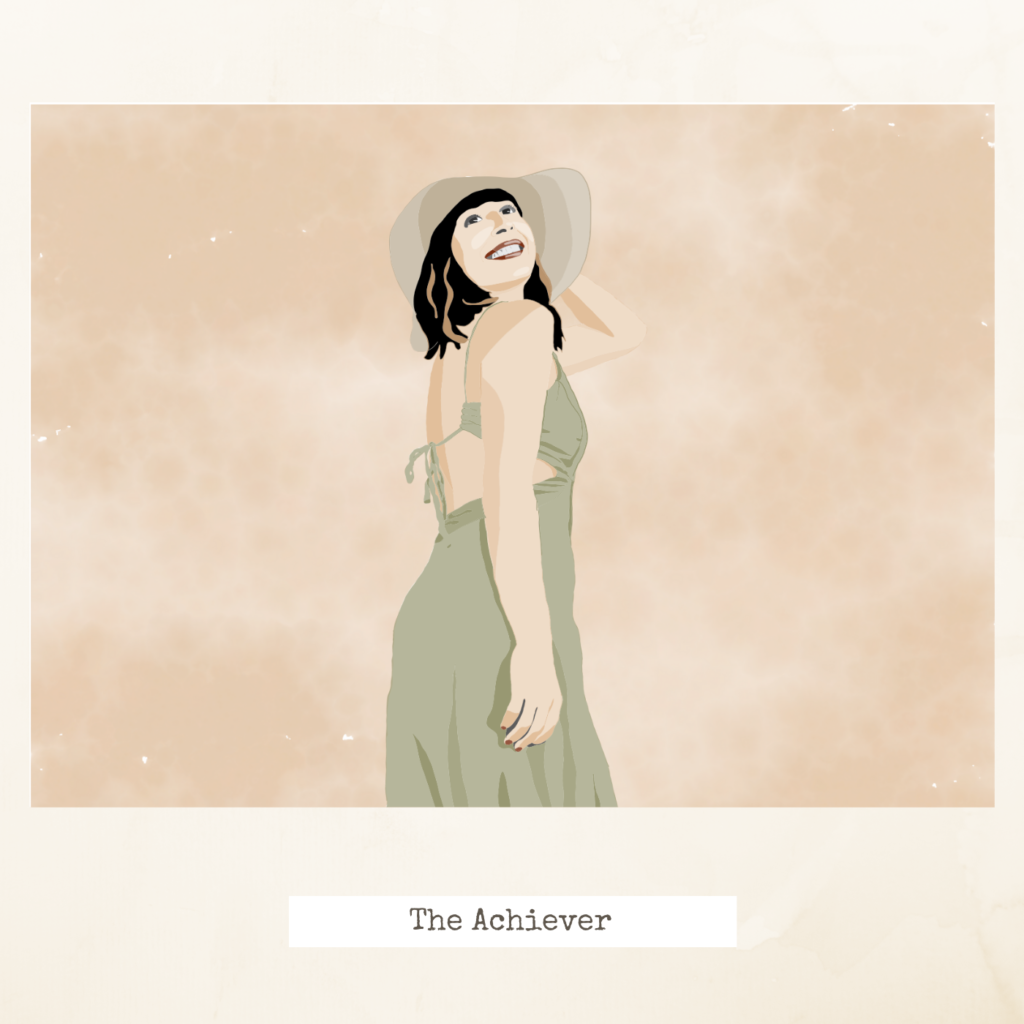
Type Three – the Achiever
Type Threes are adaptable, self-assured and naturally charming. Their ambitiousness, competence, energy, and drive usually makes them very successful. Achieving comes easy to Threes and they expect themselves to be outstanding at everything they do. Their successes fuel their energy and their drive to keep achieving. As soon as they’ve reached one goal there’s always another one. They feel a need to constantly push themselves to do better. They typically have problems with workaholism and competitiveness and can also be status-conscious and overly concerned with their image and what others think of them.
When type Three experienced their Divine Source they knew their being to be innately Valuable. They also saw the precious value in everyone and everything around them. As they lose touch with their Essence they begin to feel as if they are only loved when they do really well. Growing up they learn to get validation through achievement and performance. They develop the core belief that life is a contest and they have to be the best. Their Inner Critic can sometimes appear more like a cheerleader, telling them that they are only ok if they are successful and others think well of them.
Threes constantly scan their environment and adapt to fit in. It’s like they’re always on stage and they switch masks depending on the role. They enjoy having an audience, but they can also find it stressful to always have to appear to have it all together. Sometimes they worry that people will see through their polished exterior and call their bluff.
The pressure to succeed sometimes makes Threes generous with the truth. Their intention is not to be deceitful; it’s just a subtle nuancing, downplaying a little or embellishing. The truth is that the one they are really deceiving the most is themselves. By prioritising success at all costs, they become more and more alienated from their Essence. As they focus on what they think everyone else expects of them, they lose touch with who they truly are. In order to be as efficient as possible they push their feelings aside.
At their best, Threes have a healthy confidence and lead by example. Their ability to see the potential in every situation and every person, and their willingness to mentor makes them natural role-models. They are very perceptive of the environment and can adapt as needed to make the best of the situation for everyone. They are in touch with their soft heart and show up authentically.
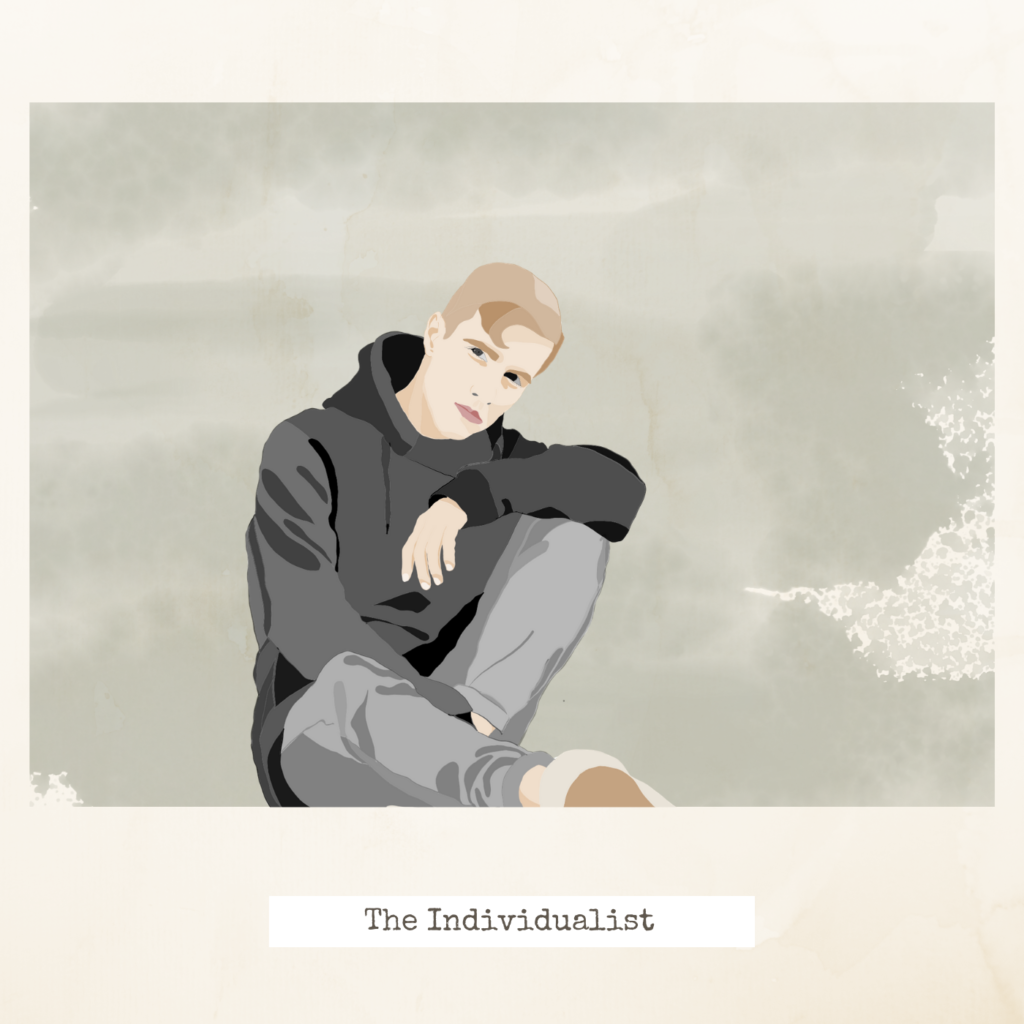
Type Four – the Individualist
Type Fours are introspective, romantic, self-aware, sensitive and reserved. They are emotionally honest, creative and personal. They seek deeply to understand who they are and why they are here. Deep down they feel as if they are missing something important, or worse, that there’s something intrinsically flawed with them. Others seem so clear about who they are, and their life seems so ‘perfect’. Fours constantly compare themselves, which leads to envy. Sometimes they become scornful and feel that they should get a break, be exempt from ordinary ways of living.
Type Fours experience the divine as Depth; a beautiful mystery. Connected to this deep well of divine beauty they felt an innate sense of meaning and purpose and a deep sense of intimacy with themselves. Loosing contact with their Essence seems as if their union with beauty is broken. They desperately try to create an outer world of beauty, but they feel as if their life no longer holds meaning or real depth.
Type Fours often feel misunderstood, as if people just don’t get them. So, they withdraw, secretly hoping that someone will follow and see their uniqueness. As they distance themselves, they become even more introspective, self-conscious and moody. They long for the experience of emotional depth and authentic connections. Sometimes they have difficulty appreciating present relationships as they yearn for what could be better.
They typically have problems with melancholy, self-indulgence and self-pity. They value emotional honesty and even though they hurt, their feelings make them feel alive. They fear being ordinary or insignificant and expect themselves to always be special.
At their best Fours are inspired, highly creative and able to transform their struggles into something beautiful. They care deeply about inner feelings, theirs and others, and they have a gift for sensing others emotions and guiding people in distress. They are engaged in life and they do not get overly attached to their emotions.

Type Five – the Investigator
Type Fives are perceptive, cerebral, alert and insightful. They have a strong drive to understand how things work and are able to concentrate and focus on developing complex ideas and skills.
From a very young age, Fives often feel a need to be informed about everything in as much detail as possible. They are fascinated by learning and find safety in knowledge and understanding. But the information they gather is never enough. They feel a need to always be the expert; to know information that no one else knows. It helps them to feel self-confident, especially in social situations where they often feel awkward.
Connected to the Divine Source type Fives experience their Essence as Discovery, where they are in awe of the ever fresh unfolding of life, which they are a part of. They trust their deep inner knowing and have no need to attach to any particular point of view. There’s a spacious quality inside them and all around them. As they lose connection with their Essence, this spaciousness is replaced by an emptiness. They try to fill this inner void with thoughts, ideas, knowledge, silence, and space. In order to stay focused, they withdraw.
Fives are private and usually prefer to not talk a lot about themselves. They need a lot of time on their own and a place that is just for them. Too many demands on their time and energy overwhelm them and they withdraw. It’s important to them to maintain calm—at least on the outside. This does not mean that they are not emotional, they just keep it on the inside and under control. They register everything that happens, but as an objective observer. Once they are alone, they can begin to evaluate and organise their feelings.
They can become preoccupied with their thoughts and detached from the external world. They can also at times be high-strung and intense. They typically have problems with eccentricity, negativity, and isolation.
At their best, Fives are independent, innovative and true visionaries, often ahead of their time. Because of their capacity to listen and absorb everything objectively, they often bring new perspectives. They naturally possess strong contemplative gifts and when they access their deep inner wisdom they are able to flow from one way of seeing things to another without getting attached to any of them. They are engaged in life and trust that they will have the knowing they need.
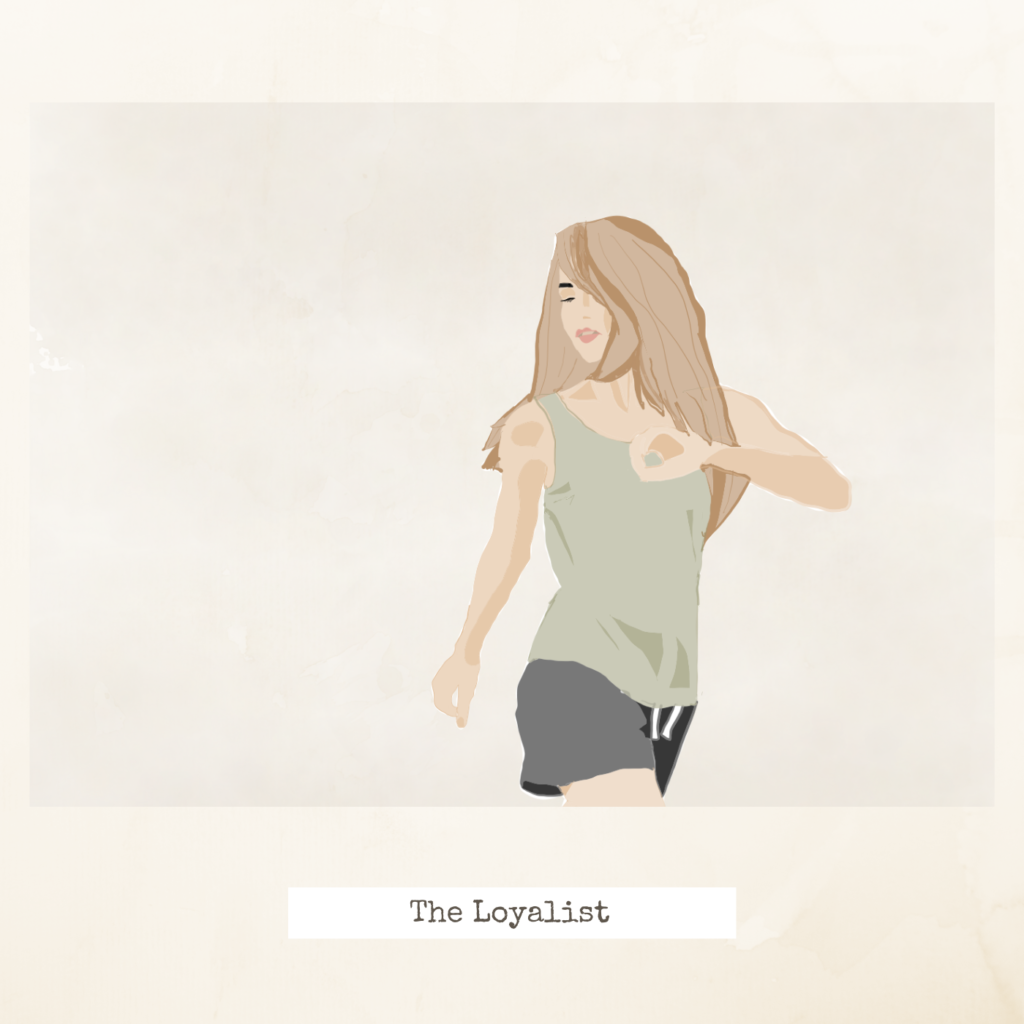
Type Six – the Loyalist
Type Sixes are committed, security-oriented, reliable, hard-working, responsible and trustworthy. They are excellent team players, co-operative, and loyal. In relationships, one can count on their fidelity, warm-heart and sincere feelings. They often have a great sense of humour, dry and witty.
Connected to their Source, Sixes experience their Essence as Truth; a deep inner sense of real existence and divine presence. Here they feel solid, grounded and supported. As they lose their connection to their Essence they no longer know who or what to trust and they begin to believe that the world is dangerous.
Always sensing danger, makes Sixes fearful, mistrustful and keeps them in a state of high alert. Not only are they suspicious of others, they also struggle to trust themselves. Their self-doubt leads Sixes to look around for authority figures and structures that offer them the security and certainty they crave. To take away their anxiety, Sixes can become loyal to a fault, putting their trust in authoritarians and making choices that are not aligned with their deepest values or wisdom.
Sixes are often contradictory as they, depending on the situation, will either obey their fear or rebell against it. Weather they more often tend to avoid risks or face them head on might depend on their dominant instinct, classifying them as either phobic or counterphobic. Either way they are often a mix of opposites, both cautious and indecisive, and also reactive and defiant.
At their best, Sixes are internally secure, stable and self-reliant. They have an unusual ability to be a loyal and hardworking team player, making commitments and courageously standing up for them. They are excellent trouble shooters, paying attention to what could go wrong and finding solutions ahead of time. They want good leadership and possess the courage to take on this task if no one else is doing it.

Type Seven – the Enthusiast
Type Sevens are busy, outgoing, productive, optimistic, versatile and spontaneous. Playful, high-spirited, entertaining, quick-minded and fun-loving, they can still be completely dedicated to hard work.
Connected to the Divince Source, Sevens experience their Essence as Freedom; a sense of open ended consciousness. This freedom doesn’t reject or hold on to anything, pain or pleasure, it just allows everything to evolve freely. As they lose the connection with their Essence, their yearning for Freedom becomes a search for variety, contentment, opportunities and distractions in order to avoid pain.
Always searching for more, from a very early age Sevens felt like they didn’t get enough nurturing. And so they take on a self-nurturing posture as a means of coping with their frustration and buried pain. Deep down they’ve taken on the belief that their true source of satisfaction is outside of them. They don’t trust anyone else to be able to satisfy or nurture them.
They often fear committing to things and can have a hard time following through before moving on to the next exciting project. In order to avoid being bored, they tend to overdo everything that brings them pleasure. Scarcity of options and opportunity creates tremendous anxiety for Sevens. This can result in them becoming over-extended, scattered and undisciplined. They constantly seek new and exciting experiences but can become distracted and exhausted by staying on the go. They typically have problems with impatience and impulsiveness.
At their best, type Sevens are able to be still and find true joy in the moment. They savor all that life offers with a profound sense of gratitude. They bring high levels of energy and enthusiasm to planning and implementing the big picture. Their charm and optimism inspires others to feel encouraged and see new possibilities. They are a source of adventure and freedom in the world.
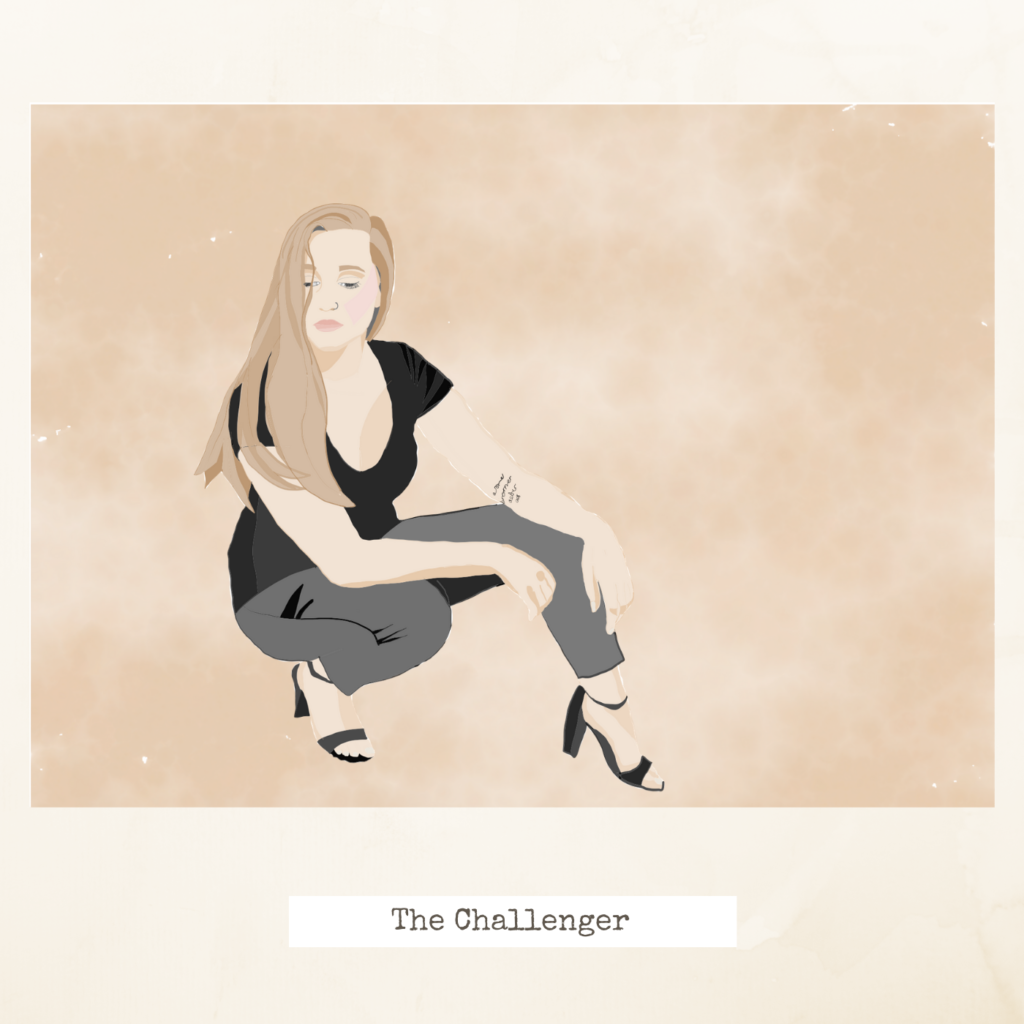
Type Eight – The Challenger
Type Eights are powerful, aggressive, self-confident, strong and assertive. They are passionate about justice and truth and will often root for the underdog. They feel that it’s their responsibility to protect the weak and they are willing to fight for what is just.
Eights experience their connection to Divine Source as Power: an omnipotent strength, where they felt fully alive and present. As they lose this connection to their Essence they try to recreate the sense of powerful vitality, but it becomes forceful and willful. In order to feel alive they crave intensity, so they overdo everything; there’s a sense of go big or go home. As they no longer feel that strong sense of aliveness that is their True nature, a part of them feels like they’re dying. They fear being destroyed and they take on the belief that the world is hard and unjust and that it’s not safe to be soft and vulnerable.
They expect themselves to always be strong both for themselves and their tribe. They feel they must control their environment, especially people, sometimes becoming confrontational and intimidating. They typically have problems with their temper. Their straight-forward, decisive style can come across as offensive and domineering. Eights hate bullies but can also be the biggest bullies. If they feel that they have been betrayed they do not hesitate to seek vengeance.
Type Eights have a powerful and often intimidating presence, yet behind their tough exterior is a huge heart protecting the vulnerable child within them. They are natural leaders and at their best they use their strength to improve the lives of others. They are heroic, generous, initiating and inspiring. They are comfortable with power, have the ability to envision great things and the courage to see them through. You know where you stand with them.
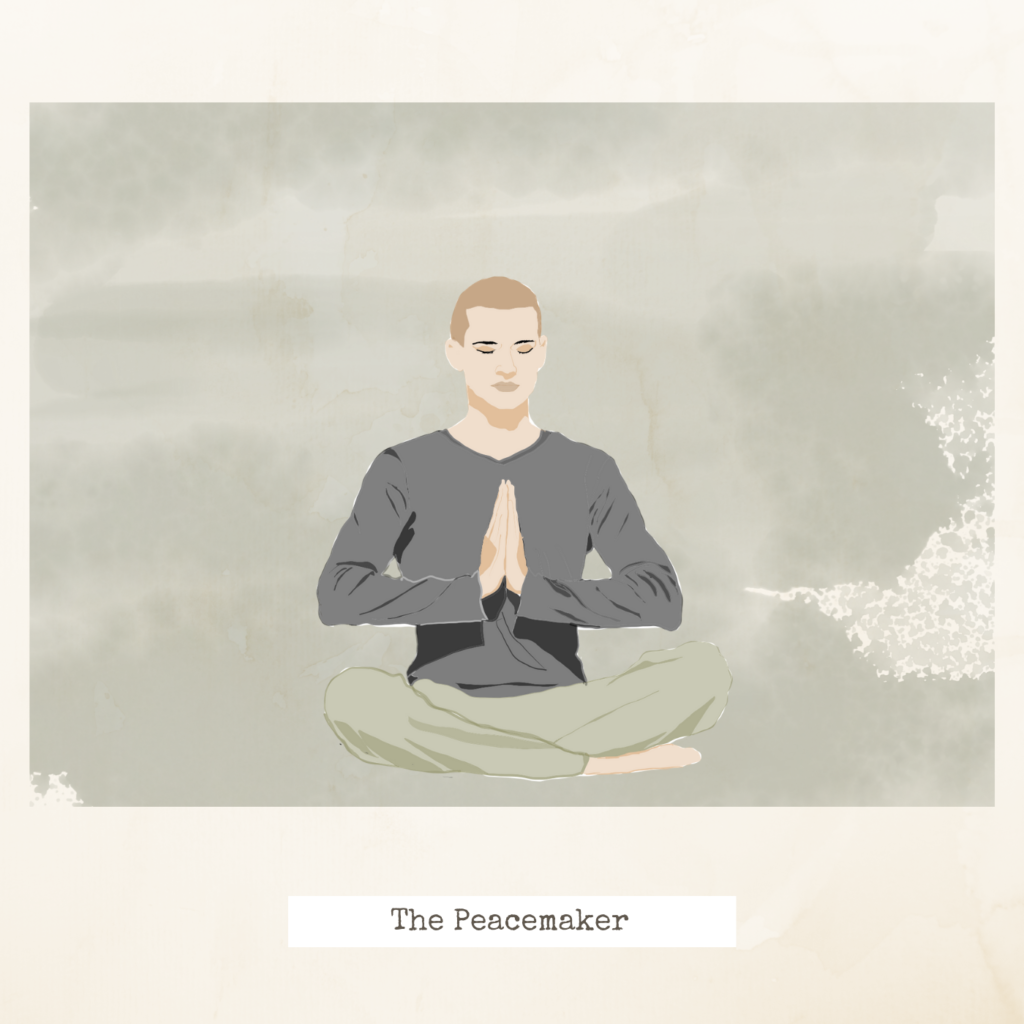
Type Nine – The Peacemaker
Type Nines are easy-going, self-effacing, accepting, trusting and grounded. They are calm, supportive, good listeners and often creative. They want everyone to get along and are great mediators.
Type Nines experienced their connection to Divine Source as Harmony; a peaceful yet dynamic presence where they are One with everything. As they lose the connection with their Essence they try to recreate peace and harmony by withdrawing into their own inner sanctuary. No longer remembering their Oneness, they feel separate and insignificant. They take on the core belief that they need to erase themselves in order to experience any form of connection. They fear that if they assert themselves they risk not belonging anymore, so instead they try to merge with the outside world. Their Inner Critic tells them that they are only OK if everyone around them is ok.
As they feel the need to pull back it becomes difficult for them to stay actively engaged. They might appear busy, but they’re somewhere else in their mind. It can be tough to know what they think and feel, they tend to be vague, go along to keep the peace and can seem distracted or checked out. They stay out of the way and seem to have no needs. They repress their anger as it could lead to conflict which they avoid at all cost. Often they are not even aware that they have anger, but it leaks out in passive aggressive and stubborn behaviours.
At their best type Nines are are fully engaging themselves in the present moment and they work co-operatively to create harmony and peace in the world. Their gift of accepting others without prejudice makes people feel understood and accepted. They are able to see and appreciate the positive aspects of all sides, heal conflicts and bring people together.

P.S. The above descriptions of each type are based on my understanding of the teachings by Russ Hudson, Don Richard Riso, Roxanne Howe-Murphy, Beatrice Chestnut and Richard Rohr. I will post a list of my favourite Enneagram resources here soon!
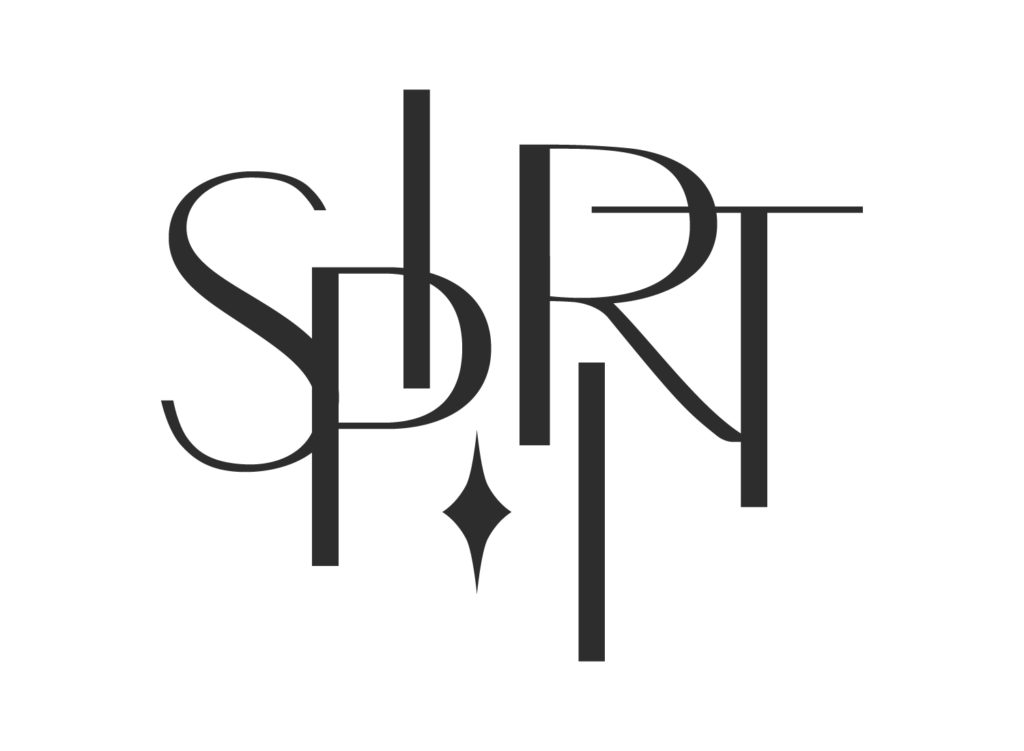
ADD A COMMENT